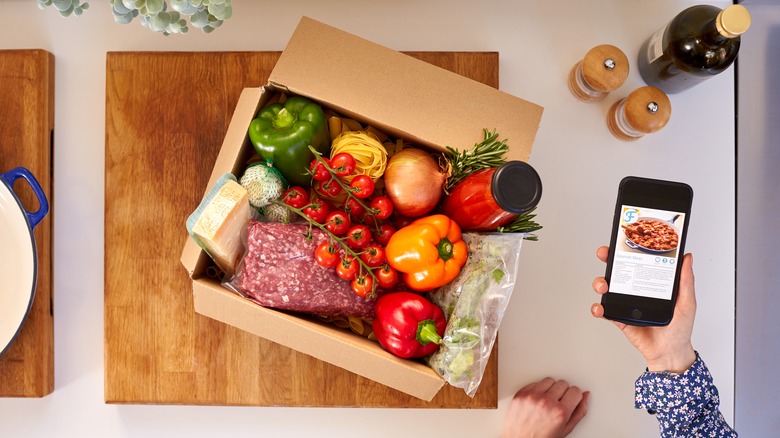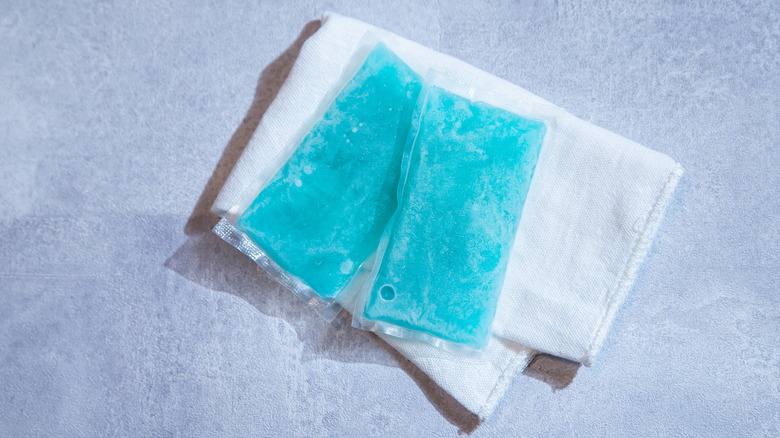How To Dispose Of Meal Kit Delivery Ice Packs
If you've ever ordered a meal delivery kit, you're likely familiar with the ice packs that come packed with the food. These ice packs are essential for ensuring that perishable ingredients in each and every meal kit don't spoil while in transit or on your front porch after they've been delivered. It's true that ice packs are a necessary part of the convenience of meal kits, but what can you do with them after you've unpacked the food?
Luckily, most meal kit companies include instructions on how to dispose of the ice packs. Read them carefully, as not all ice pack disposal instructions are created equal; each company may use a different type of filling for the packs, which means they may require different methods of disposal. For instance, Hello Fresh instructs customers to empty the gel found in its ice packs into the trash before recycling the ice pack bag, while Blue Apron advises users to dispose of the gel contents from its ice packs down the drain.
Even though the majority of empty ice pack bags are recyclable, any ice pack you dispose of will most likely not be able to go in the bin for your curbside recycling pickup. The type of plastic used for these ice packs is known as plastic film and, like plastic grocery bags, will wreak havoc on the machinery typically used at recycling plants. Most supermarkets have a box for used grocery bags and will accept any type of plastic film, including empty ice packs.
Reuse those ice packs
But what if you'd rather skip recycling altogether and just reuse the ice packs from your meal delivery kit at home? An option is to reuse them for your cooler, but the size and number of these packs may make it cumbersome to store all of them. However, some non-profits dedicated to feeding the hungry or food banks may be interested in having them to keep the food they deliver cold. Another option is to offer them up on your neighborhood's Facebook page or Nextdoor — after all, one person's trash is another's treasure. Lastly, you also may want to consider keeping a few of the ice packs in your freezer; in case of a power outage, they'll keep your food colder for longer and avoid possible spoilage.
If you're turned off by the amount of packaging in meal kits, you might be surprised to know that regular grocery shopping produces more greenhouse gases than meal kits, and that the latter are better for the planet. According to a piece published by NPR in 2019, the pre-measured food in a meal kit reduces the amount of waste and, thus, your carbon footprint. This reduction even offset the large amount of packaging needed to safely and conveniently store the food.

